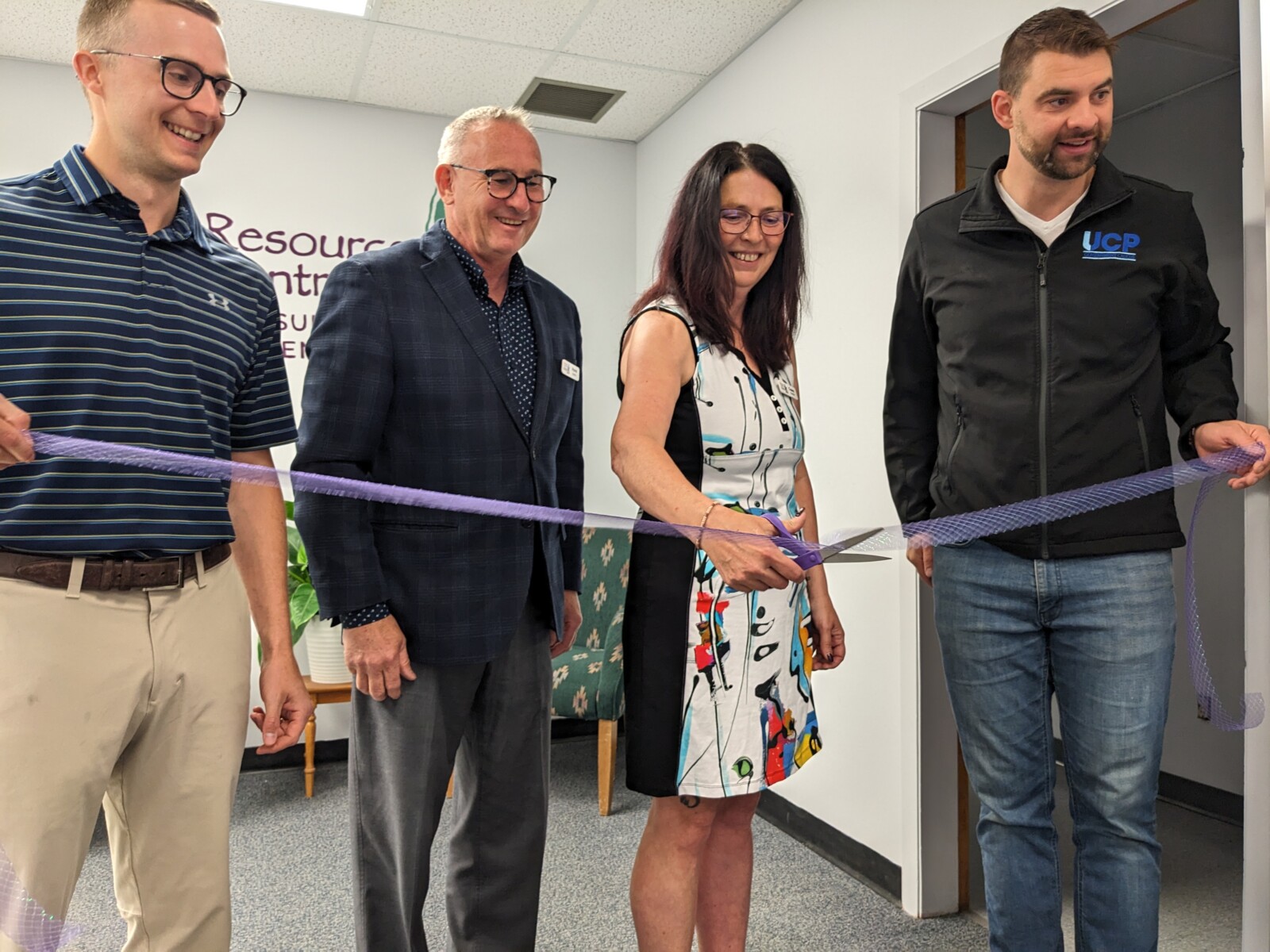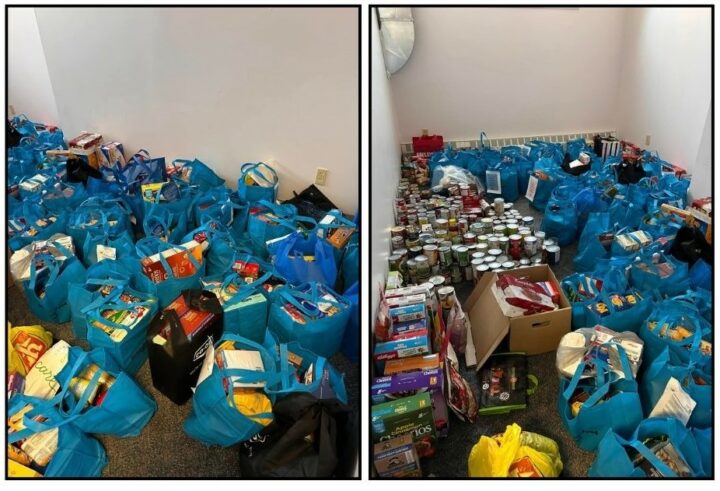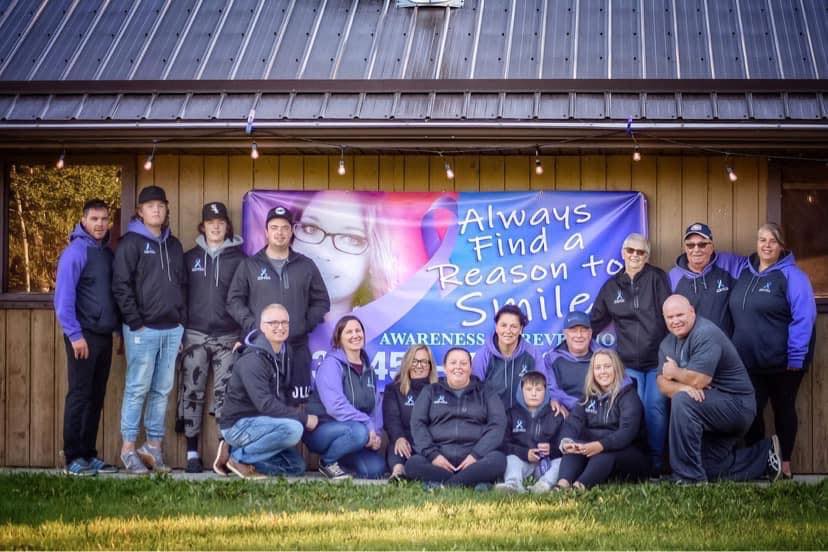Finding a Reason to Smile: Casey Szmata's Journey from Grief to Advocacy
Suicide is a difficult topic, but it’s one we can’t afford to shy away from. By starting these conversations, we aim to break the silence, provide support, and share resources that can save lives.
Hi, I’m your host, Cara Jones, and this is the Starting Conversations podcast. Whether you’re directly affected or simply want to be part of the solution, the Starting Conversations podcast is here to inform, inspire, and empower.
In today’s episode, Casey Szmata shares her story of experiencing debilitating grief after the tragic loss of her daughter by suicide and how, through her grief, she embraced the mission to bring support and resources to the North by opening a Resource Centre for Suicide Prevention in Grimshaw, Alberta.
Casey reflects on the challenges she faced, the community’s support, and the impactful initiatives launched in the past year. From youth programs to support groups for men and women, Casey’s dedication shines through as she continues to fight against suicide and promote life.
Cara: Casey, can you tell me a little bit about how the location in Grimshaw came to be and what inspired you to make this location accessible to everybody in the North?
Casey: Yes. For sure. I guess my story goes a few years back to 2012. Prior to 2012, I really didn’t know much about suicide. I hadn’t heard a lot about it. I had no idea that the Resource Centre for Suicide Prevention existed, until the tragedy happened in my family.
On December 22nd of, 2012, my daughter Morgan died by suicide. It was totally unexpected. There were no signs. There was no signal that she was having issues. She was happy. She was looking forward to the future.
She was in college. There were no indicators that pointed to her struggling. So, after she passed away, my life kind of was on hold. It’s a very difficult thing to lose your child and to find her the way I did. I guess I had given up on life. I spent some time in the hospital on suicide watch myself.
I just lost the will to live. And through it all, I had family and friends that bent over backwards to pick me up and keep me alive, basically. There are many stories I could tell that had me on my knees, but they’re in the past, and I’m grateful to be here. Throughout that journey, I came to realize quite quickly that the North didn’t have a lot of resources for bereaved parents who had lost a child to suicide.
There were bereavement groups, but suicide bereavement is just a little bit different. Different trauma, different pain. So, I attended a bereavement group here in Grand Prairie with the Resource Centre for Suicide Prevention, and I was living in Grimshaw at that time. It was a two-hour drive in the winter months. So, I missed a few because of the weather, and it was hard to get that camaraderie with the other participants. Yet I knew that the material was so important and that I needed it. At that time, it really dawned on me that the resources were lacking in our area. So my family and I got together, and we decided we’d start a foundation in honour of Morgan, and it’s funny, she had a tattoo on her foot that said, “Always Find a Reason To Smile, so that’s the name we used for our foundation for her.
It started off very small. We did some barbecues and a few fundraisers here and there, and people were very supportive. We’re from the area, so people wanted to support our initiative. And in memory of Morgan, they tried to step up. So, it was really great to see the community become involved.
Soon Always Find a Reason To Smile began to grow, and I began visiting schools and talking to kids about suicide. We started making presentations, and as I said, it just grew and grew to the point that we were stuck on what to do next, right? I knew we needed a center in the North, but I didn’t know how to go about it.
One day, I ran into the Executive Director at a meeting in Fairview after our town had suffered a few suicides. And I got to thinking maybe we could extend the office from Grande Prairie into the North region. So I made an appointment, and I met with the executive director and he loved the idea.
Instead of reinventing the wheel for Always Find a Reason To Smile, the best way would be to operate in an organization that has all of the procedures and policies in place. We went to the board of the RCSP here in Grande Prairie, and it was approved; then we started looking for a location in the North, and we chose Grimshaw because it’s central to all of the areas up there.
It’s a vast area. So, somewhere central just made sense. We approached the town of Grimshaw, and they were on board. They know the need. They know the importance of suicide prevention. So we made a deal with them on a building in Grimshaw, and we got to work with volunteers. We painted and renovated it, and it opened in June of 2023.

Cara: You’ve done a lot since opening in a year. And I’m interested to hear a little bit about what you have noticed when it comes to running prevention initiatives. What kind of feedback have you gotten, and have you seen more people smiling in regard to the support they’re getting?
Casey: So it’s been a really busy year. When I think it’s only been a year, it’s like, oh my gosh, all the things that we’ve done.
First off, I have a great group of volunteers that I need to thank because what I do couldn’t have been done without all of them and their support. So I’m very grateful for that. I’ve tried to do a wide range of programs just to satisfy so many different areas for youth, seniors, men and stay-at-home moms.
It’s difficult, but it’s so rewarding when you finish a group or a program and you can see a change in people. What’s impressed me the most is the amount of men who are stepping forward saying, I need help, and that warms my heart because I know it’s such a difficult thing for them to do.
I find gratitude in working with the kids, going into the schools, and talking about bullying and the language that they use with each other. That always gets me right in the heart. There are a lot of children suffering these days from being bullied, being called names, and being told horrible things, and it just isn’t a matter of taking the kids, sitting them down and teaching them that this is what’s happening.

Our lady’s group is another thing I’m really proud of. At any given week, we have about 20 to 25 ladies who come in for a monthly luncheon. And at that luncheon, we discuss ways that we could reach out to our community and help people who are suffering.
One big event that we did in April. We set up a town-wide food drive for our local food bank.
 The numbers that they’re catering to are just outrageous. So we know that the numbers at the food bank are going up constantly, and, of course, that’s one of the things that people struggle with when they can’t feed the family. Right? So, that leads to depression, which can lead to mental illness. So we thought that’s one way that we can band together and perhaps help somebody out of that. The community once again stood on their head for us. We had so much food. I don’t think I’ve ever seen that much food, but it was awesome. And the food bank was very happy. And I know that a lot of mouths got fed, and I’m sure a lot of peace of mind went through our communities. So, really, prevention looks like a lot of things.
The numbers that they’re catering to are just outrageous. So we know that the numbers at the food bank are going up constantly, and, of course, that’s one of the things that people struggle with when they can’t feed the family. Right? So, that leads to depression, which can lead to mental illness. So we thought that’s one way that we can band together and perhaps help somebody out of that. The community once again stood on their head for us. We had so much food. I don’t think I’ve ever seen that much food, but it was awesome. And the food bank was very happy. And I know that a lot of mouths got fed, and I’m sure a lot of peace of mind went through our communities. So, really, prevention looks like a lot of things.
Cara: It’s a really complex socio-economic situation. If you look at the social determinants of health, right? And the things that you were just talking about are complex. Everyone has different needs and different experiences. And you’ve seen this happen this year with everyone coming forward. What’s something you’d like to see happen in the future with the Centre just reflecting on what you’ve seen this year?
Casey: Honestly, I would just like to continue to have people joining us, continue to help and have them join our fight against suicide. It’s not just suicide prevention, it’s life promotion.
Thank you for tuning into Starting Conversations. If you or someone you love is struggling with Mental Health in Alberta, you can find resources on our website startingconversations.ca. Together, we can shift the narrative around Mental Health and end the stigma, one conversation at a time.
Inclusion Statement
At RCSP, we believe that meaningful dialogue thrives in spaces where everyone feels seen, heard, and valued. Our commitment to inclusion means amplifying all voices, sharing stories from all walks of life, and creating content that is accessible to everyone. Each episode of our podcast, Starting Conversations, will include a blog with transcriptions of our conversations to ensure that the content is accessible to a diverse audience, including neurodiverse individuals and those who are deaf or hard of hearing.

